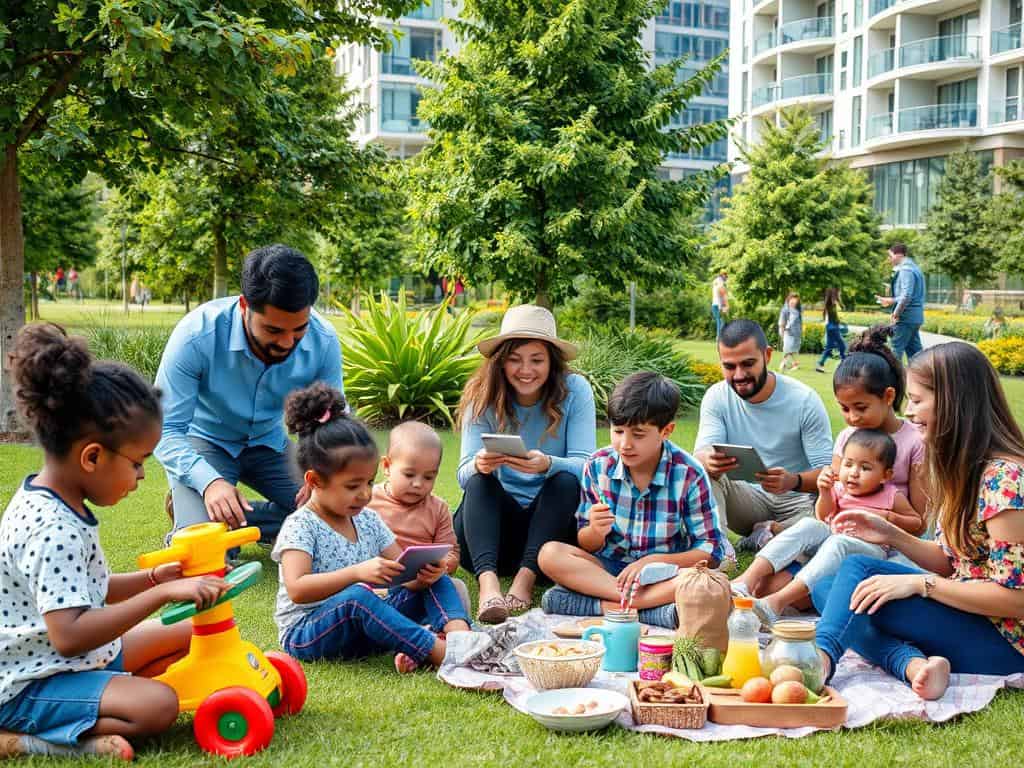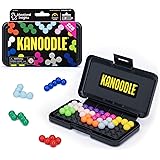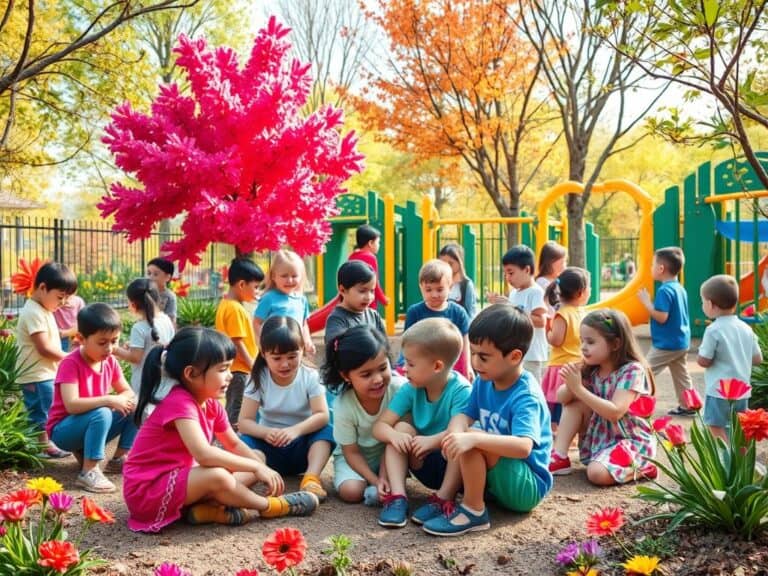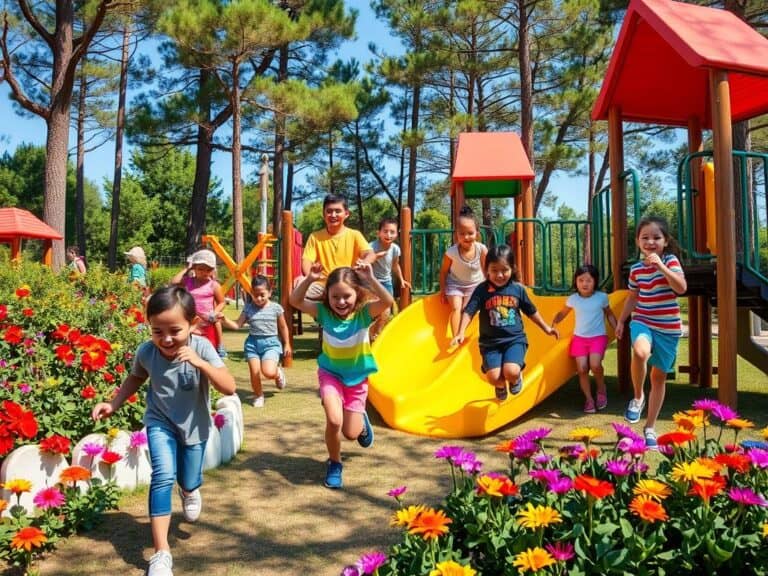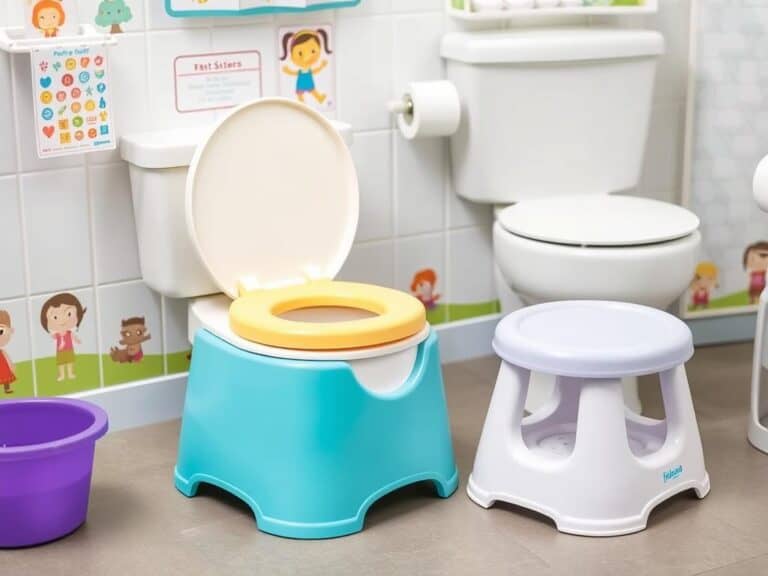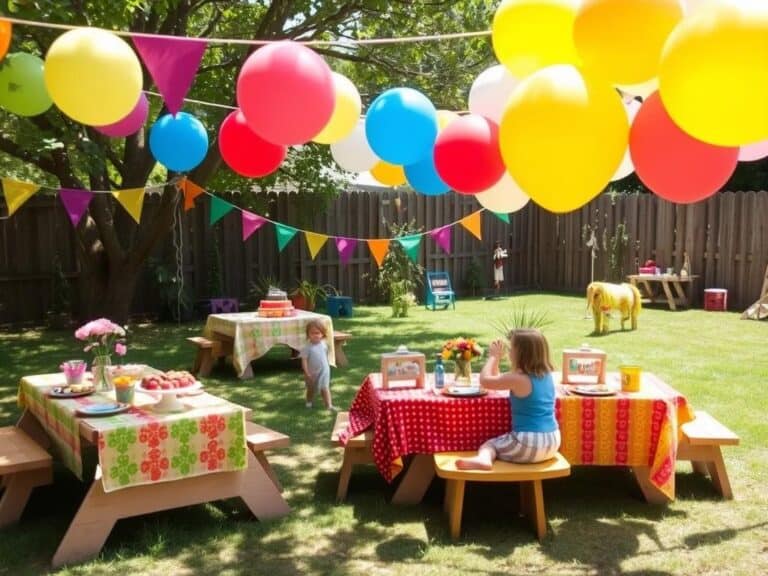Mastering Parenthood: Practical Strategies for Modern Families
LEGO Botanicals Happy Plants Building Toys - Bedroom or Dorm Room Decor for Girls, Boys, & Adults, Desk or Shelf Display - Stocking Stuffers & Gift for Christmas - 10349
$18.39 (as of December 12, 2025 09:13 GMT +00:00 - More infoProduct prices and availability are accurate as of the date/time indicated and are subject to change. Any price and availability information displayed on [relevant Amazon Site(s), as applicable] at the time of purchase will apply to the purchase of this product.)Educational Insights Kanoodle - Original 3D Brain Teaser Puzzle, Single Player Mind Challenge Toys, Handheld Travel Games, Challenging Logic Puzzles and Gifts for Kids, Teens & Adults Ages 7+
$9.99 (as of December 12, 2025 09:13 GMT +00:00 - More infoProduct prices and availability are accurate as of the date/time indicated and are subject to change. Any price and availability information displayed on [relevant Amazon Site(s), as applicable] at the time of purchase will apply to the purchase of this product.)WHAT DO YOU MEME? Emotional Support Chicken Nuggets by Relatable, Cuddly Plush Toys and Stuffed Animals, Includes 5 Plushies with Basket, Funny or Cute Holiday Stocking Stuffer
$16.97 (as of December 12, 2025 09:13 GMT +00:00 - More infoProduct prices and availability are accurate as of the date/time indicated and are subject to change. Any price and availability information displayed on [relevant Amazon Site(s), as applicable] at the time of purchase will apply to the purchase of this product.)This post may contain affiliate links which means I may receive a commission for purchases made through links at no extra cost to you. I only recommend products I truly believe in. Thank you for your support!
Raising kids today is a big challenge. It needs a mix of smart plans, feeling smart, and always being ready to change. In this guide, I’ll share what I’ve learned to help other parents in San Diego.
We’ll talk about outdoor learning, educational tools, and joining the community. We’ll also look at how to use technology wisely, practice mindfulness, and teach kids about food, safety, and money. Plus, we’ll see why parents need to take care of themselves too.
My goal is to help parents raise kids who are strong, smart, and kind. Kids who can handle today’s world with confidence and care.
Key Takeaways
- Discover effective parenting strategies for modern families in San Diego
- Learn about the importance of outdoor learning, educational resources, and community engagement
- Explore the balance of technology use, mindfulness, and nutrition for child development
- Understand the significance of safety education, cultural enrichment, and financial literacy
- Recognize the vital need for parental self-care and emotional intelligence
Understanding My Parenting Journey

Starting my parenting journey has changed me a lot. It has been both challenging and rewarding. I’ve seen big changes in myself and my family.
Reflecting on My Early Experiences
When I first held my newborn, I felt a mix of love, wonder, and responsibility. The first few months were full of learning and adjusting. I had to meet my child’s needs, feeling both excited and tired.
Embracing the Role of a Parent
Being a parent is a big privilege and responsibility. I love helping my child grow and bonding with my family. These experiences have taught me a lot about myself.
I’ve learned to handle the ups and downs of parenting. Each stage brings new challenges and chances. I try to stay open-minded and adapt to new situations. This helps me on my parenting journey.
“The journey of parenthood is not a destination, but a never-ending adventure filled with discovery and growth.”
Effective Communication with My Children

Being a modern parent, I’ve found that talking well is key. It’s not just about telling them what to do. It’s about having a real talk that builds trust and understanding.
Active Listening Techniques
I’ve learned to really listen to my kids. I pause, look them in the eye, and focus on what they say. This lets me catch their feelings and help them feel heard.
Choosing Words Wisely
I pick my words carefully when talking to my kids. I use kind words that help them feel good about themselves. This way, they learn to solve problems and handle tough times.
Setting Boundaries
But talking openly is just part of it. I also set clear rules and consequences. This makes them feel safe and teaches them to respect themselves and others.
Learning to communicate with children, listen actively, and set boundaries has changed our family. It’s made our bond stronger, helped them understand their feelings, and set them up for success.
“The quality of a child’s life is determined not by the circumstances of their existence, but by the relationships they establish and the communication they experience.” – Lauryn Montgomery, Bloom Counseling Services
Balancing Work and Family Life

Finding a good balance between work and family is hard for modern parents. But, with the right strategies and support, it’s possible to do well in both areas.
Time Management Strategies
Good time management is key for working parents. Studies show that when parents manage their time well, kids benefit a lot. Using digital tools and apps can help keep things organized and ensure family time is not lost.
Many companies now offer flexible work options, like remote work. This is great for working parents.
Setting Priorities
Knowing what’s most important is vital for a good work-life balance. It’s important to make a schedule that shows both work and family needs. Being realistic and accepting that things won’t always go as planned is also key.
Don’t forget to take care of yourself. Neglecting self-care can lead to burnout.
Finding Support Systems
A strong support network is essential for working parents. This can include family, friends, or other working parents. Modern dads, for example, do a lot more childcare and housework than dads in the 1960s.
Keeping work and family in balance takes patience and flexibility. By managing time well, setting priorities, and having support, working parents can do well in both their jobs and family life.
| Strategies for Balancing Work and Family Life | Benefits |
|---|---|
| Utilize digital tools and apps | Streamline workflow and ensure priorities are met |
| Embrace flexible work options | Provide more time and flexibility for family |
| Create a master schedule | Reflect both work responsibilities and family priorities |
| Prioritize self-care activities | Prevent burnout and maintain well-being |
| Develop a strong support network | Achieve work-life balance successfully |
“Balancing work and family life is an ongoing process that requires patience and adaptability.”
Fostering Emotional Intelligence in My Kids

As a modern parent, I focus a lot on emotional intelligence in my kids. It includes knowing oneself, controlling emotions, feeling for others, getting along with people, and understanding why we do things. These skills are key for kids to grow up healthy.
I make sure my kids feel heard and understood. I teach them to solve problems and get along with others. This helps them build a strong emotional base.
Recognizing and Validating Feelings
I pay close attention to how my kids feel. I let them know their feelings are real and important. This helps them understand themselves better.
I never tell them to stop feeling a certain way. Doing so can stop them from growing emotionally.
Encouraging Empathy
- I show empathy by listening and caring when they share their feelings.
- I teach them to see things from other people’s viewpoints. This helps them understand and care for others.
- Through talks, I help them deal with tough social situations. This way, they learn to solve problems with kindness.
Dealing with Conflicts
When fights happen, I stay calm and try to find solutions. I help my kids understand and share their feelings. Then, we work together to find a fair solution.
Teaching them how to solve problems helps them grow emotionally. It prepares them for life’s challenges.
| Emotional Intelligence Components | Benefits for Child Development |
|---|---|
| Self-Awareness | Helps kids know their feelings and understand themselves. |
| Self-Regulation | Teaches kids to control their feelings and actions. This leads to better choices. |
| Empathy | Builds understanding and kindness towards others. This improves how they interact with people. |
| Social Skills | Gives kids the tools to talk well, work together, and handle social situations. |
| Understanding Motivation | Helps kids set and reach goals. This builds a positive mindset and resilience. |
By focusing on emotional intelligence, I’m helping my kids grow in many ways. It’s a journey, but the benefits are huge. Raising emotionally smart kids is truly rewarding.
“Emotional intelligence is the ability to recognize, understand, manage, and reason with emotions.”
Creating a Positive Home Environment

Making your home a positive place is key for your kids’ growth. Design spaces for family fun, keep routines, and boost creativity. This helps your kids feel safe and grow well.
Designing Family-Friendly Spaces
Think about how your home can meet your family’s needs. Set up areas for play, learning, and rest. Make sure there are toys, books, and fun activities for your kids.
Add things that spark their creativity, like a cozy reading spot or an arts area.
Establishing Routines
Having regular routines gives your kids a sense of safety and order. Create a schedule for meals, bedtime, and family time. Let your kids help with these routines to teach them responsibility.
Encouraging Creativity
Help your kids’ creativity grow by setting up a creative space. Give them art supplies, music tools, or building blocks. Support their creative play, even if it’s not perfect.
By making your home welcoming, setting routines, and encouraging creativity, you help your kids grow. A positive home environment is the base for family routines and encouraging creativity in your kids.
“The greatest gift we can give our children is a positive home environment where they feel safe, loved, and encouraged to explore their creativity.”
Navigating Modern Parenting Challenges
Being a parent today comes with its own set of challenges. Technology and social media have changed how our kids live. We must manage screen time, handle peer pressure, and teach them about social media.
Technology and Screen Time
Technology affects how kids grow up. It can be good for learning and creativity. But too much screen time can harm their health and sleep.
It’s important to set limits on screen time. Encourage them to play outside, read, and spend time with family. Teaching them to think critically online is also key.
Dealing with Peer Pressure
Peer pressure is tough, even more so online. Talk openly with your kids and guide them. This helps them make good choices and form healthy friendships.
Teach them to solve problems and understand their feelings. This way, they can handle social situations better.
Managing Social Media
Social media is a big part of our kids’ lives. It can be good for connecting and self-expression. But it can also harm their mental health and lead to bullying.
It’s crucial to talk to your kids about their online activities. Set rules and encourage them to balance online and offline life. Strong family bonds can help counteract social media’s negative effects.
Dealing with today’s parenting challenges requires a broad approach. By tackling tech, peer pressure, and social media, we can help our kids succeed. Open communication, digital education, and balance are key to guiding our families in the digital world.
Building Resilience in My Family
Resilience helps us deal with life’s tough times. As a parent, I want to teach my family to be strong. I focus on problem-solving skills, small wins, and a growth mindset. This way, my kids can face challenges and grow.
Teaching Problem-Solving Skills
I don’t solve every problem for my kids. Instead, I help them find their own solutions. I encourage them to think of ideas, consider the good and bad, and take smart risks. This builds their confidence and teaches them to solve problems on their own.
Celebrating Small Wins
- I celebrate every small success in our family. It could be doing well on a test, trying something new, or getting past a tough time. I always make sure to say “good job!”
- By focusing on these small wins, I show my kids that every step forward is important. It’s all about the journey, not just the end goal.
Encouraging a Growth Mindset
We believe in a growth mindset in our home. I teach my kids to see mistakes as chances to learn and grow, not as failures. This mindset helps them face challenges with courage and keeps them motivated to keep going.
| Protective Factors for Children with Parental Depression | Resilience Outcomes |
|---|---|
| Individual Capabilities | Positive Adjustment |
| Family Characteristics | Reduced Risk Impact |
| External Support | Maintained Self-Esteem and Self-Efficacy |
By using these strategies, I’m sure my family will be strong enough to face any challenge. We’ll grow and thrive together.
Nurturing Healthy Family Relationships
Building strong family bonds is key for a child’s emotional health. It’s not just about how much time we spend together. It’s about the quality of that time. Quality time lets us really connect, listen, and bond with our kids. This builds trust and open communication.
Quality Time vs. Quantity Time
Quality time is more important than just being together. Being fully present and focused on our kids is what matters. Family relationships grow when we put away distractions and engage in activities that interest us both.
Playing games, going for walks, or having deep talks are great. These moments of quality time create strong bonds.
Building Trust with My Children
Trust is crucial in any relationship, including with our kids. Showing up, keeping promises, and creating a safe space for feelings helps. This builds open communication and respect.
When kids feel heard and understood, they’re more likely to talk to us. They’ll seek our advice and guidance.
Encouraging Open Dialogue
- Have regular family meetings where everyone shares without fear of judgment.
- Create a space of empathy and understanding, valuing each person’s view.
- Ask open-ended questions to encourage kids to share about their lives and dreams.
By focusing on quality time, trust, and open talks, we build a supportive family. This lets our kids grow and thrive.
“The best thing about family relationships is that there is no expiration date. They can last forever if you nurture them with love, care, and attention.”
Embracing Self-Care as a Parent
As parents, we often put our kids and family first. But, taking care of ourselves is key for our mental health. It helps us be the best for our loved ones.
Prioritizing My Mental Health
Parenthood is both rewarding and tough, with little sleep and feeling drained. To fight this, we must focus on our mental health. Simple acts like deep breathing, light exercise, or talking to parent support networks can help.
Finding Time for Myself
Managing time well is crucial for self-care as a parent. Using childcare or co-parenting can give us time for ourselves. Activities like hobbies, meditation, or reading can greatly improve our well-being.
Connecting with Other Parents
Parenthood can feel lonely, but connecting with others helps. Joining groups, attending workshops, or having playdates can offer community and friendship. Sharing and supporting each other is very valuable.
By caring for ourselves, focusing on our mental health, and building a support network, we can handle parenthood better. Remember, self-care is not a luxury but a must for being a great parent.
Lifelong Learning in Parenthood
Parenthood is a journey of growth and discovery. As parents, we must see that learning never stops. Seeking guidance from experts is key in facing the challenges of raising our children.
Seeking Guidance from Experts
In San Diego, we have many parenting resources. Classes, workshops, and support groups are led by experts. Places like the San Diego Children’s Discovery Museum and the San Diego Financial Literacy Center help parents.
They teach skills like curiosity, critical thinking, and financial literacy. These programs give parents the tools to make good choices and create a caring home.
Attending Workshops and Events
Being part of the parenting community is important. San Diego has many family-friendly events and workshops. Topics include CPR, military family support, and eco-friendly parenting.
These events help us learn and connect with other parents. We can share ideas and learn from each other.
Reading Books and Articles
Reading about parenting can also help us grow. San Diego’s libraries, bookstores, and online resources have lots of books and articles. They help us understand child development, emotional intelligence, and how to communicate well.
By reading, we become more informed and confident parents. We can adapt to the changing world of parenting.
